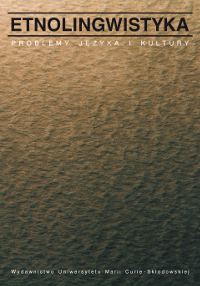Definicja kognitywna pojęcia demokracji w języku polskim
The concept of democracy in contemporary Polish: Towards a cognitive definition
Author(s): Monika Grzeszczak Subject(s): Anthropology, Language studies, Applied Linguistics, Cognitive linguistics
Published by: Wydawnictwo Naukowe Uniwersytetu Marii Curie-Sklodowskiej
Keywords: cognitive definition; values; democracy
Summary/Abstract: An attempt is made in the paper to reconstruct the concept of democracy in contemporary Polish by means of the cognitive definition, proposed in the writings of Jerzy Bartmiński (1988-2007). In order to reconstruct the possibly fullest picture of the concept, entrenched in language and culture, three complementary sources of data are used: systemic data, questionnaires and texts (journalistic texts of various genres, from the dailies Rzeczpospolita and Gazeta Wyborcza).In the theoretical part of the article, the author presents an understanding of democracy, referring to the views of political scientists, sociologists, philosophers and linguists. Then she discusses the rank of the concept relative to other Polish value terms, on the basis of the relevant research (e.g. M. Fleischer’s research on collective symbolism). In the analytical part, the author presents the meanings of the lexeme demokracja ‘democracy’ identified on the basis of dictionary definitions: 1. a political system; 2. a country with such a system; 3. a form of government; 4. a political party/a social group supporting the democratic form of government; 5. a way of organizing social life; 6. civic rights. Then a political understanding of democracy is accepted, as a political system in which a specific form of government is practised. On the basis of three types of data, the author identifies the defining (base) features of democracy, correlated with specific aspects of the concepts. In the political sense, democracy for speakers of Polish is above all associated with free elections, a multi-party system, lawabiding behaviour and, as the word’s etymology suggests, with the power of the people. In the economic sense, democracy is associated with capitalism and a free market. In the social sense, democracy is characterized by freedom, specific civic rights (especially the freedom of speech) and equality. In the ethical sense, democracy is based on values and its inalienable element is above all justice and respect for human rights.
Journal: Etnolingwistyka. Problemy Języka I Kultury
- Issue Year: 21/2009
- Issue No: 21
- Page Range: 69-84
- Page Count: 16
- Language: Polish

